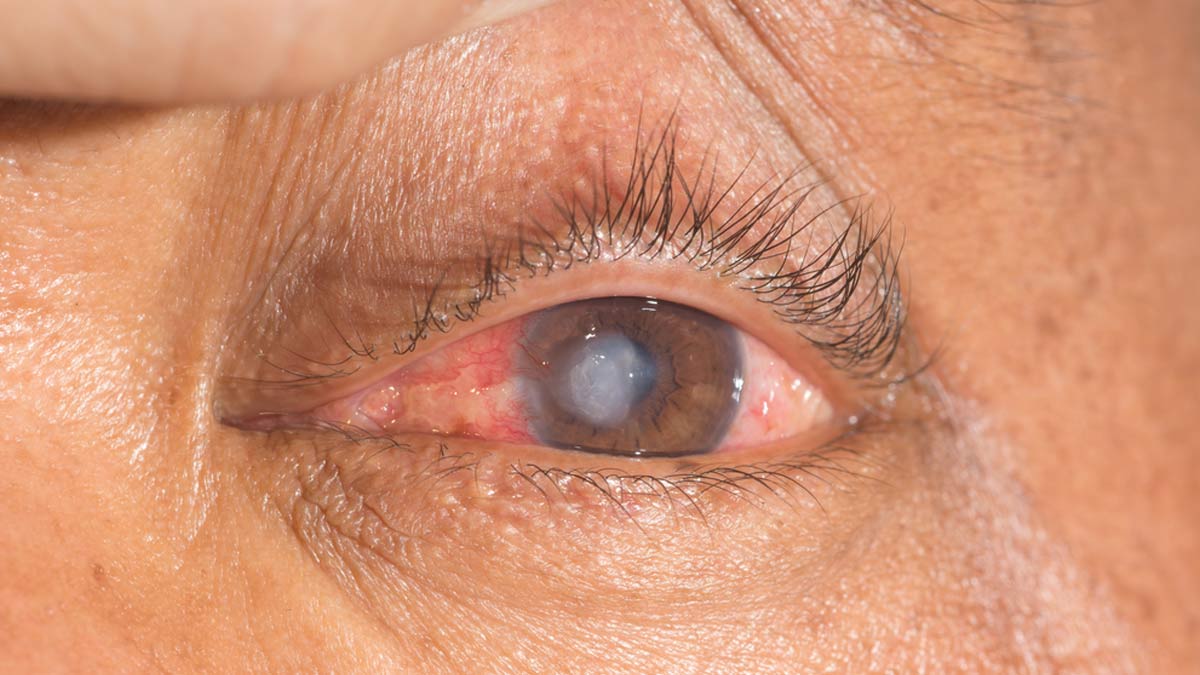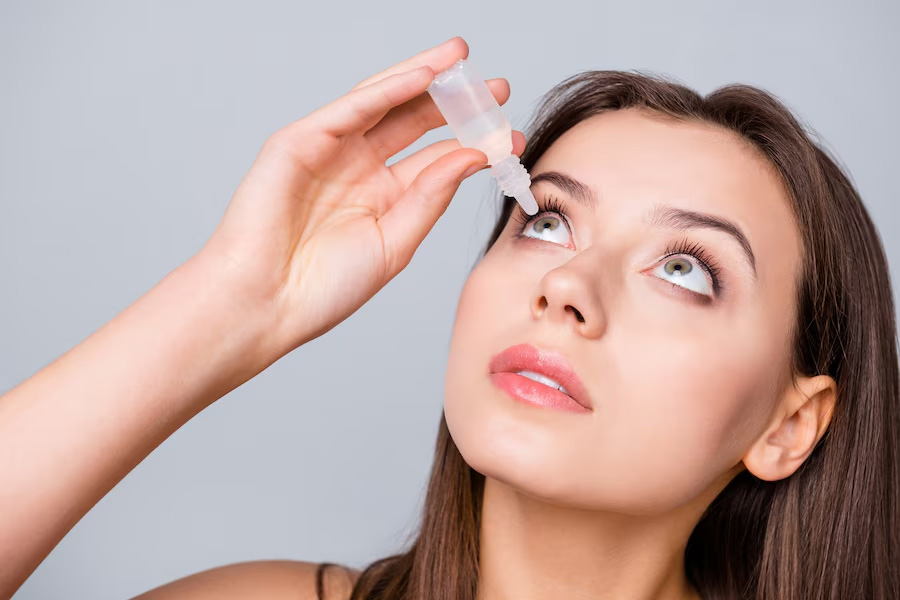
A corneal ulcer is an open sore on the clear, dome-shaped surface of your eye (cornea). It can be caused by infection, injury, or other factors. Although relatively rare, it can be a serious and potentially sight-threatening condition if not managed properly. In this article, we list simple yet effective eye care practices that you can follow to prevent this eye condition.
Table of Content:-

According to StatPearls, a corneal ulcer is a serious eye condition where the corneal surface is compromised, affecting the underlying stroma and posing a potential threat to vision. It typically involves tissue erosion, infiltration, and tissue death.
Also, it frequently occurs among contact lens wearers, particularly those who wear them continuously or overnight. Moreover, people may be at an increased risk of developing a corneal ulcer if they have diabetes, have previously undergone eye surgery, use corticosteroids, use contaminated eye medications, or work in agricultural settings.
Causes Of Corneal Ulcer
Some of its common causes are:
- Bacterial Infections: Often linked to poor contact lens hygiene or injury
- Viral Infections: This includes Varicella-Zoster Virus (VZV) or Herpes Simplex Virus (HSV)
- Fungal Infections: Particularly common in agricultural settings or tropical climates
- Dry Eye Syndrome: Lack of adequate eye lubrication may result in corneal abrasions
- Trauma: Injury from foreign objects, scratches, or improper use of contact lenses
Also Read: White Spots On Eyes: Expert Explains Corneal Ulcer And Its Treatment
Essential Eye Care Tips to Prevent Corneal Ulcers

Practice Good Hygiene
- Hand Washing: The Centers for Disease Control and Prevention (CDC) advises individuals to cleanse their hands before inserting contact lenses and to store them in a disinfecting solution.
- Contact Lenses: Follow your eye care professional's instructions for the proper care and cleaning of contact lenses. Avoid wearing them overnight unless prescribed.
- Replace Lenses: Replace contact lenses as recommended and never use expired or damaged lenses.
Protect Your Eyes
- Wear Eye Protection: Do not forget to wear safety goggles or glasses during activities that pose a risk of eye injury, such as gardening, sports, or working with hazardous materials.
- UV Protection: Wear sunglasses that block 100% of UVA and UVB rays to shield your eyes from harmful ultraviolet radiation.

Maintain Eye Moisture
- Use Artificial Tears: If you suffer from dry eyes, use preservative-free artificial tears to lubricate and hydrate your eyes regularly.
- Blink Regularly: Take breaks from prolonged screen time to blink and prevent your eyes from drying out.
Avoid Eye Irritants
- Limit Contact: Avoid touching or rubbing your eyes with dirty hands or objects that could introduce bacteria.
- Avoid Smoke: Stay away from smoke and smoking areas as smoke can irritate and dry out your eyes.
Also Read: Eye Drops Or Laser Surgery? Expert Explains Which Is A Better Treatment For Glaucoma
Regular Eye Exams
Schedule Check-ups: Visit your eye care professional regularly for comprehensive eye exams. Early detection and treatment of any eye condition can prevent complications, such as corneal ulcers.
Healthy Lifestyle Choices
- Balanced Diet: Eat a diet rich in vitamins and nutrients, including omega-3 fatty acids found in fish, nuts, and seeds, which promote eye health.
- Stay Hydrated: Drink plenty of water to maintain overall hydration, including proper tear production.
Prompt Treatment of Eye Infections
Seek Medical Attention: If you experience symptoms, such as eye pain, redness, sensitivity to light, blurred vision, or discharge, seek prompt medical attention. Treatment and diagnosis of corneal ulcers at an early stage can prevent complications.
[Disclaimer: This article contains information for informational purposes only, hence, we advise you to consult your own professional if you are dealing with any eye issues to avoid complications.]
Also watch this video
How we keep this article up to date:
We work with experts and keep a close eye on the latest in health and wellness. Whenever there is a new research or helpful information, we update our articles with accurate and useful advice.
Current Version